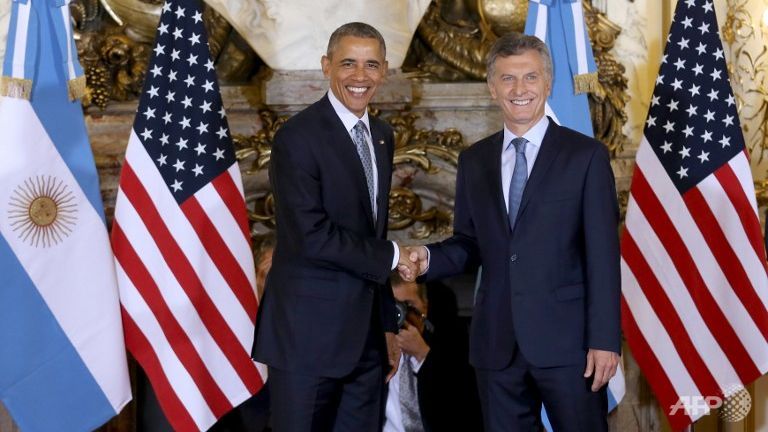
The USA Extends the Hand of Friendship
President Obama’s recent visits to Cuba and Argentina represent the latest movement in a strategic change in U.S. foreign policy which, with varying levels of success, has been seen in the Middle East, Central Asia, the Pacific, Europe and Latin America.
The objective is to expend nothing more, especially in terms of lives, and to obtain the maximum political capital possible through the most appropriate means. Ever since Obama’s first term in office, part of the country’s navy has been redeployed in the Pacific with the clear aim of containing China. With China’s creation of small islands in the South China Sea, aimed at claiming disputed territories which are armed to the teeth, this move is now coming head to head with Beijing’s expansionism. What a minefield.
In Central Asia, Washington has been trying desperately to rid itself of the Afghan burden, but the Taliban presence in the oil-rich Middle East is preventing them from doing so. The U.S. has resisted deploying ground troops in any significant number, although its air force is active in Syria and Iraq alongside two to three thousand advisers and members of the special forces, because the president knows that public opinion is hostile to more wars in little known countries far from home. He also trusts that the use of drones, which hold the obvious advantage of not having any crew that could potentially fall into enemy hands, will at least suffice for a policy of containment. In Europe there is the tricky situation in Ukraine which, with neither NATO nor Russia willing to part with their share of the spoils, has descended into a stalemate with de facto partitioning of the country.
Alongside preserving the U.S.’ position of dominance on the world stage, Obama is pursuing objectives that are both practical and symbolic in nature before his time in office comes to an end in January 2017. The nuclear pact with Iran is an attempt to defeat jihadism with the assistance of Tehran and, in the long term, a project aimed at bringing stability to the region. The visit to Havana is the climax of the normalization process with a Cuba that no longer poses a threat to anyone and represents a project for the future. In order to succeed, however, the process will have to overcome obstacles such as the ending of the trade embargo and the seemingly insurmountable task of returning Guantanamo Bay, the base for which the U.S. pays rent of $4,085 a year which Havana refuses to accept so as to not legitimize the site’s continued usage by the U.S. The idea that the base could be returned to Cuba while politics remain dominated by Castroism is unthinkable. Finally, the trip to Argentina is a welcome gift for President Macri, showing the Argentines favorability over a Brazil currently at war with itself, and a celebration of the defeat of Kirchnerism in the recent elections. All of this has taken place against the backdrop of the decline of the Bolivarian bloc of nations, personified by Venezuelan President Nicolás Maduro. Obama’s aim for Latin America is simple – he wants to be a good neighbor.
The ultimate aim of this diplomatic dance, rather than going back to the drawing board and changing the entire piece, is to leave Obama’s eventual successor, Hillary Clinton, with a slate as clean as possible of any debts to pay. Undoubtedly, the president’s biggest failure has been the Israel-Palestine conflict, something that every president since Eisenhower has been remorselessly thwarted by. However, the reality is that Israel, with vocal allies such as Hilary Clinton, would have nothing to fear should the U.S. decide to extend the hand of friendship here, as it has done the world over.


